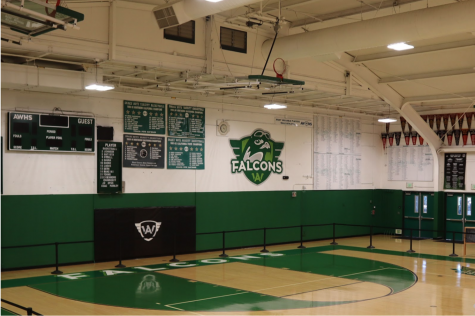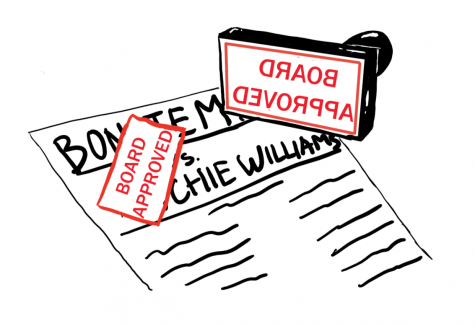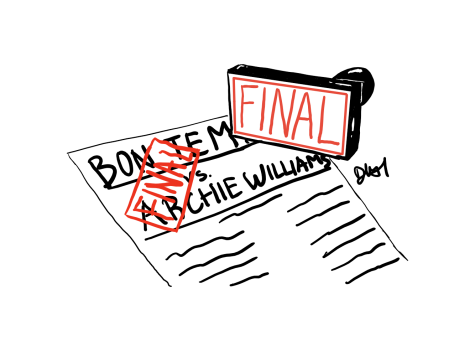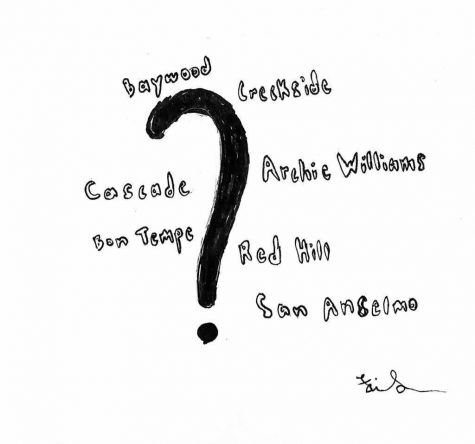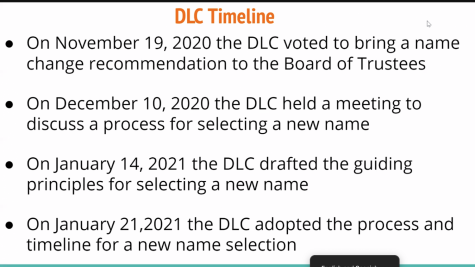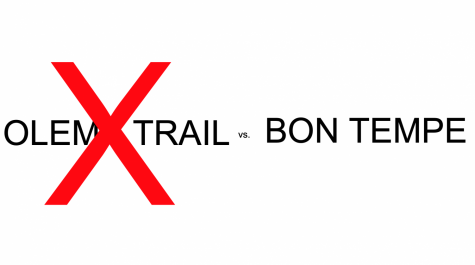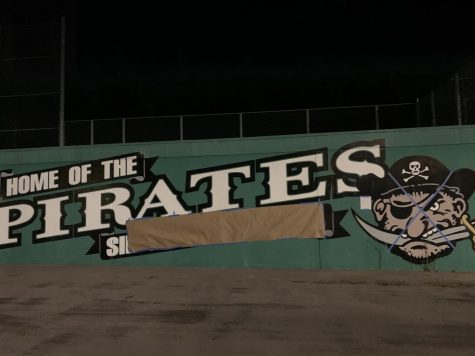Curriculum change English, Small Learning Communities
February 14, 2019
On the heels of course workshops, with plans for next fall on the horizon, the school looks to adapt the 9/10 Small Learning Communities and English course offerings to raise academic standards for all students entering their junior year. For the last 25 years small learning communities have been a fixture at the school and an integral part of what differentiates Drake from other schools in the district.
The English course offerings, especially for upperclassman, vary from year to year depending on what teachers deem necessary to meet students’ academic needs, Ninth grade students take English 1-2 and sophomores English 3-4. Nonfiction is also a possibility for those who just want to add another English course to their transcript. The major adjustments are coming to junior and senior English classes.
“The goal is to make junior year more writing focused and senior year more literature focused,” Principal Liz Seabury said. Junior year is already more writing oriented with AP Language and Composition. However, not all students want to participate in an Advanced Placement English class due to the higher level of difficulty and heavier workload.
“It is the course that prepares you to read and write at the college level. It also exposes you to current events and debate topics,” English teacher Jennifer Mall said. Next year juniors will have the ability to take AP Language and Composition, Essay/Exposition, or Nonfiction.
Seniors will have the option to take AP Literature and Composition, Nonfiction, and American Literature/Contemporary Literature. The available electives will still be Creative Writing, Advanced Journalism, and Nonfiction.
But next year Nonfiction will not be a prerequisite for participation on the Jolly Roger. All students, from all grades, will be able to take Advanced Journalism. “Advanced Journalism, next year, will rebuild the Jolly Roger. We will establish a culture of student-centered, project focused excellence. I’m most excited about including a diverse staff of 9-12 graders, of artists, photographers, techies, and passionate writers,” next year’s advisor to the Jolly Roger Jonathan Weller said.
Previously, upperclassmen shared the same choices, except for AP English Literature and Composition. The other option was semester-long paired courses. These pairings included Dramatic Literature and Humor, and Humanities and World Literature.
Sophomores, juniors, and seniors may still also take Nonfiction. Aside from these changes to the English curriculum, there is also a new team committed to review the Freshmen and Sophomore Small Learning Communities “to study and propose a plan for 9/10 SLCs” according to Principal Liz Seabury. “Many years have passed; different styles of small learning communities have arisen; teachers who made that consensus are not all here now, new teachers have joined us.
There are probably reasons that I haven’t thought of, but it seems like a good time to examine our model and make sure we’re offering students the best,” ROCK English teacher Mary Kitchens said. According to Seabury, the communities have been reviewed in past years to make adjustments and this time is no different. It will consist of a volunteer team of staff, open student focus groups, and a student senate subcommittee.
“The teachers at the latest staff meeting voted on three issues to review this next year and Small Learning Communities were chosen as the main issue,” Seabury said. The purpose of the staff team, dubbed the “Innovation Team,” will be to use feedback on the SLCs to create a new plan for improving the current curriculum.
This could mean a reformatting of the programs or total dissolution. Composed of staff, recent graduates, students, and parents, the team has only met once so far on Jan 14. The goal is to improve alignment between SLCs when it comes to their enrollment process, learning outcomes, structure of assignments, and their culture.
“In an ideal world, all students are intellectually challenged, curious, engaged, and satisfied that they are learning and growing,” Kitchens said. This is only one part of the review process. There will also be open student focus groups with current and past students from Small Learning Communities. “
We will hire someone from outside to review the system and help us reimagine Small Learning Communities,” Seabury said. The goal will be to take the analysis from these processes and apply them to the small learning communities to make them more equitable. What it will take to achieve this is yet to be determined. “It is about ensuring that all 10th graders leave the small learning communities with the necessary skills to be successful,” Seabury said.
This review has already produced significant results. A new smaller SLC with a more traditional curriculum is being offered to incoming 9th graders with more changes still to come, but it is too early to know for sure. “We know that the next school year 2019-20 will look similar to this one because to do this work carefully, it could take a lot of time,” Kitchens said.


